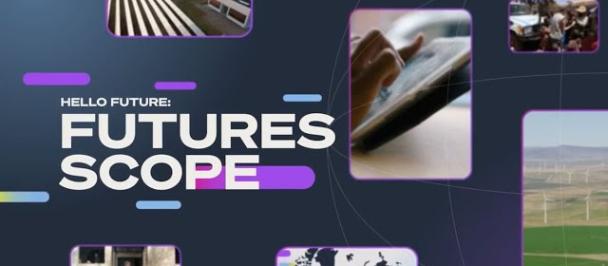As prepared for delivery.
The United Nations shares the World Bank Group’s firm commitment to the implementation of the 2030 Agenda for Sustainable Development - guided by the Addis Ababa Action Agenda on Financing for Development - as well as the Paris Agreement on climate change.
Building on successful past and on-going collaborations, expanding and deepening the partnership between the UN and the World Bank Group is essential to accelerate progress towards 2030. This will be particularly important in the areas of mobilizing finance for sustainable development; addressing climate change; action at the nexus between peace and security, humanitarian, and development assistance; as well as in realizing the data revolution.
Financing for Sustainable Development
The Addis Ababa Action Agenda provides a broad framework for financing sustainable development. The 2018 report of the Inter-agency Task Force on Financing for Development (IATF), launched last week, finds progress across all the action areas of the Addis Agenda. It further highlights that this progress is underpinned by an upturn in the world economy, increased investment, and supportive financial market conditions, while also recognizing that significant risks remain. The report, which was jointly produced by the UN Secretariat, the IMF, the World Bank, WTO, UNDP, UNCTAD, and more than 50 UN and other agencies, provides a range of policy options which, if implemented, promise to put the world on a sustained and more sustainable growth and development path.
Some important messages include:
First, the importance of incentives of both public and private actors to be aligned with long-term sustainable development. Without a long-term investment horizon, certain risks, such as those from climate change, will not be incorporated into decision-making.
Second, the need for integrated national financing strategies that provide long-term vision beyond short-term political cycles to inform policies, plans and project pipelines.
Third, public, private and blended finance are all important for SDG investments. However, national policy priorities, as well as specific country and project characteristics, should determine which financing model is best suited for specific investments, and which actors are best positioned to manage risks and provide services equitably and cost-effectively.
Finally, public leadership is indispensable to set the necessary rules, promote coherence across sectors, and overcome the constraints that impede sustainable-development-oriented structural transformation.
The UN is looking forward to working with the World Bank on taking these messages forward.
A key question underlying international debates on financing sustainable development relate to the respective roles, and complementarities, of public, private and blended financing. The Addis Agenda underlines the potential of blended finance instruments, while calling for careful consideration of their appropriate structure and use. Our joint analysis in the IATF report has built on this by highlighting potential risks that need to be considered when using blended finance instruments. Given that blended finance has so far largely bypassed least developed countries, greater research into the appropriate use of such modalities in these countries is needed. As Multilateral Development Banks and other providers are scaling up the use of such modalities, they should ensure that these activities are in line with existing development effectiveness principles, and also, importantly, do not divert funds away from countries and societies most in need.
Climate Action
Climate change and climate-related disasters are inflicting tremendous costs on peoples and their economies. The latest data speaks for itself: in 2017 the hurricane season in the Caribbean was the costliest in decades ; over 40 million people were affected by floods in South Asia ; and drought drove nearly 900,000 people from their homes in Somalia . Meanwhile, also in 2017, global energy demand grew by 2.1 percent, and carbon emissions rose for the first time since 2014.
As climate change risks will continue to grow in 2018 and beyond, more ambitious climate action is urgently needed. Current national climate pledges have set the world on a path towards 3.2oC temperature rise, far above the goals of the Paris Agreement . The UN Secretary-General has recently warned that climate change is the most systematic threat to humankind and has urged international community and world leaders to further cut emissions. Member States must take the opportunity of updating their Nationally Determined Contributions (NDC) to ensure the next round collectively meets the goal of well below 2oC, aiming for 1.5oC above pre-industrial levels.
Looking ahead, it is clear that prospects for eradicating poverty, building inclusive and equitable societies, and ensuring sustainable development depend upon countries pursuing a zero-carbon and risk informed approach to development. The UN and the World Bank Group have a key role to play in supporting these efforts, including by assisting countries to build enabling environments, access transformational finance, scale up proven solutions, and ensure that climate action is in line with the 2030 Agenda. By enhancing our partnership in all of these areas, we have the potential to make our support even more effective and beneficial to the countries we serve.
And we have a number of successful examples to build on. For instance, together with development partners, regional organizations, and the private sector, we have been working to make our development support better risk-informed, in line with the 2030 Agenda, the UN Plan of Action on Disaster Risk Reduction and Resilience, and the World Humanitarian Summit Commitments to Action. This includes integrating disaster and climate risk considerations in the UN system-wide SDG-MAPS process as well in the UN Development Assistance Framework processes.
Adequate and sustained sources of financing, underpinned by strong institutional frameworks and regulatory mechanisms, is also critical for successful climate action. Through the NDC partnership, the UN and the World Bank have been supporting countries to put in place the necessary mechanisms to implement their NDCs and through the Invest4Climate platform we are currently working together to identify and facilitate transformational investments to scale up climate action in developing countries.
Humanitarian-Development Nexus and its linkages to Peace
Achieving the 2030 Agenda and ensuring no one is left behind requires a pro-active, evidence-based and holistic approach to risk, resilience and prevention across humanitarian, development and peace efforts.
The UN and the World Bank have identified collaboration in fragile, post-conflict and humanitarian settings as a priority for joint work, giving a particular focus on early investments in economic and social stability that can translate into longer term development progress and SDG achievement. This is in line with the findings of the recent flagship UN-World Bank Report “Pathways for Peace” , which provides an evidence base for engaging in prevention at a much earlier stage, including by addressing horizontal inequalities, building broad based coalitions, mobilizing financing, and advancing system-wide multidimensional risk assessments. These are all promising areas for future collaboration, and we are currently exploring how we can take them forward.
In this context, the UN also counts on the World Bank’s support and active participation in the Joint Steering Committee to Advance Humanitarian and Development Collaboration. We also look forward to continuing our longstanding partnership on joint assessments for recovery and peacebuilding (RBPA) together with the European Union and for post disaster needs (PDNA).
Another area in which the UN and the World Bank could step up their collaboration is in the field of disaster risk reduction and financing. Indeed, disaster risk is increasing and so are the economic losses from disasters. Analysis has shown that annual investments of $6 billion in disaster risk reduction could generate benefits of up to $360 billion. To support vulnerable countries optimize their capacities to mitigate and manage disaster and climate risks, the UN has been working closely with the World Bank and others to implement flagship initiatives like the Global Preparedness Partnership and the Insurance Development Forum.
The financial response to disasters could be more efficient if the international community realigned their disaster financing from an ex-post response to ex-ante provision of risk-pooling funds and instruments. This could include both pooled financing and insurance-type instruments. An increased focus on preparedness would include building incentives for risk reduction into their design. Insurance-type instruments are only efficient when the risk pool is wide enough to allow for sufficient diversification. Donor assistance could therefore increase the system’s efficiency by helping least developed and other vulnerable countries participate in sovereign risk pools.
Realizing the Data Revolution
Generating new and disaggregated data will be critical to SDG achievement. With today’s fast technological progress and vast amount of data that typically characterize it, the data revolution can certainly help us plug data gaps.
The data revolution, however, will only realize its potential if we all work better together, combining our data and expertise to gain the new insights that we can bring to bear on the grand challenge of sustainable development. This calls both for enhanced partnerships with external stakeholders, such as the private sector, civil society and academia, as well as within the UN family, including the World Bank and IMF. Within the broader UN System, we have started to do just that through the new UN Data Innovation Network, which will help us strengthen our capacity to innovate together using new data techniques and tools to underpin our collective efforts to advance the SDGs.
UNDP, UNICEF and the World Bank have joined efforts to support monitoring and reporting of national multi-dimensional poverty in the context of the SDGs. Building on that, we need to go even further and harmonize our approaches for measuring such a critical indicator at the global level. Monitoring multi-dimensional poverty is also an excellent example of using data to drive an integrated approach to policy-making and targeting those left behind – a central tenant of the 2030 Agenda.
Later this year, the UN will launch a One UN initiative on legal identity that will link closely with the World Bank’s ID4Development programme. The goal is to support achievement of SDG Target 16.9 and provide legal identity for all, including birth registration, by 2030.
Conclusion
The UN Secretary-General has presented a vision for significant adjustments to the United Nations development system for it to be optimally positioned to support implementation of the 2030 Agenda. Some of the key proposals are being debated by Member States. At the heart of these adjustments is building a new generation of United Nations Country Teams to be more responsive to needs on the ground and better support in-country results. These stronger Country Teams, along with a revamped regional approach and other measures at global level, should enable stronger engagement and coherence of the United Nations with partners, including the international financial institutions. By working collaboratively on analysis, and leveraging and harnessing the complementary strengths of different organizations, we can better support countries achieve the SDGs.
In particular, the partnership between the United Nations and the World Bank Group has a special place in seeking to achieve impact at scale to help transform economies and societies. The UN looks forward to taking this critical partnership even further.

 Locations
Locations




